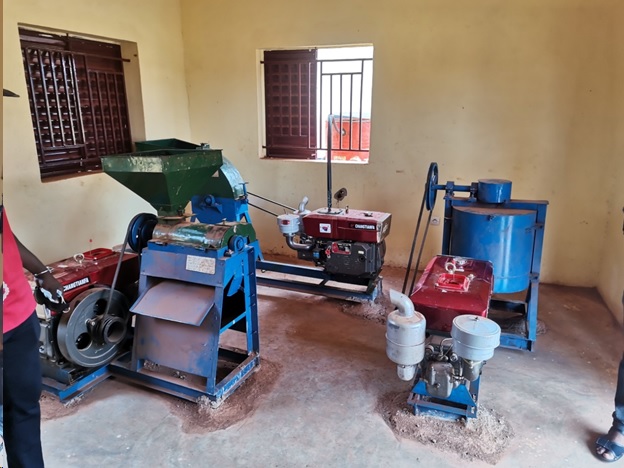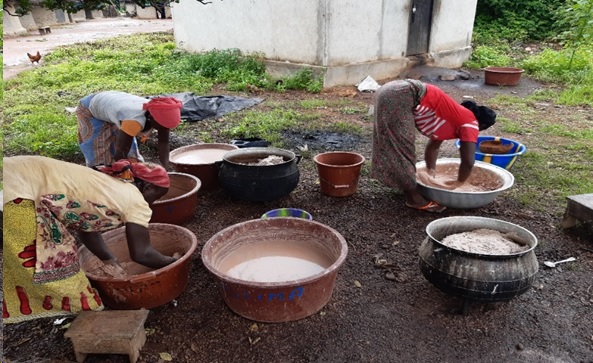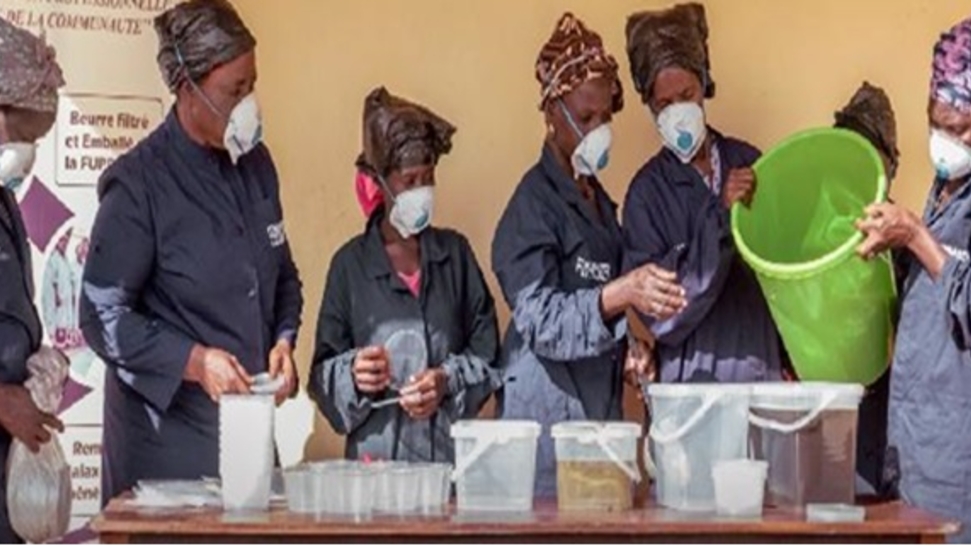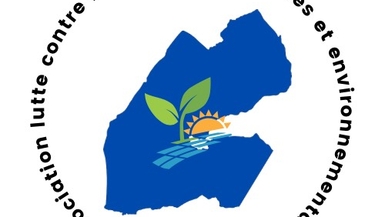Campaign Status
Ongoing Offline: The campaign is currently ongoing offline and, thus still in the process of collecting funds.
Summary
The campaign aims to improve the income of women and girls producing shea butter and facilitate their access to enhanced production and marketing technologies.
Challenge
Karité production faces several challenges, including low and inconsistent production, poor product quality at the end of the process, management and organizational inefficiencies, a lack of commercial connections, particularly in international markets, and insufficient funds to purchase raw materials like karité nuts.

Solution
The project aims to help stakeholders address the following issues: low productivity and quality of shea butter, weak management capacity of organizations, lack of commercial links for exporting shea butter, particularly to foreign markets, and insufficient working capital to purchase raw materials (shea nuts) from collectors.
Shea has strong cultural significance and numerous uses, including as fruit, edible oil, skin treatment, and medicinal products. It provides income for women and helps strengthen social ties within their organizations. Additionally, it contributes to improving income and combating poverty, particularly in rural areas.

Shea butter, in particular, is highly sought after for various applications in the food, cosmetic, pharmaceutical, and para-chemical industries. Due to its diverse applications and specific properties, demand for shea butter is high in the international market. However, the development of the shea sector in Guinea is closely tied to the production system, processing methods, and product marketing strategies.
The project's goal is to increase the number of supported local organizations from 3 to 5 (one in Central Guinea and one in Northern Guinea). Alongside this increase, the project aims to expand the number of stocking centers from 6 to 8 in the same regions. Through these efforts, the entire industry will be able to produce karité outputs more efficiently and export products beyond the local area. This will be achieved in 5 steps:
- Identification and selection of the most deserving participating organizations,
- Transformation of the organizations' needs into long-term development programs,
- Implementation of the projects,
- Training and support for producers and partners,
- Protection of karité-producing fields.



